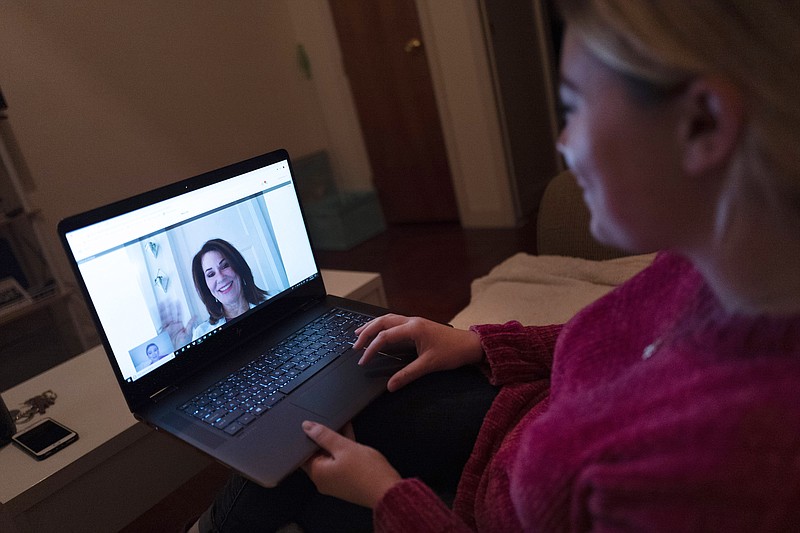A bill Missouri lawmakers are considering would allow physicians to establish a doctor/patient relationship virtually - and in some cases establish "an informed diagnosis" - without the two ever having met.
House Bill 495, which the House Health and Mental Health Policy Committee considered Monday, would modify the definition of telemedicine to include adaptive questionnaire digital technology.
Adaptive questionnaires use a hierarchy of questions to automatically choose questions that focus on a subject or issue.
HB 495, sponsored by state Rep. Becky Ruth, R-Festus, would allow someone designated by a physician to use the information generated by the questionnaire to provide treatment, establishing a physician/patient relationship in order to prescribe drugs or treatment.
Current law prevents health care providers from prescribing any drug, controlled substance or other treatment based on internet requests or "static" questionnaires, which don't have the ability to provide follow-up questions.
Justin Alferman, SSM Health director of government affairs, who is a former state representative and former staff member for Gov. Mike Parson, testified in front of the committee that Parson's executive order voiding parts of statutes on telemedicine allowed Missourians to better take advantage of telemedicine. It also allows patients to avoid situations the COVID-19 pandemic potentially makes dangerous.
Since it enabled adaptive questionnaires, SSM Health has "seen an increase of 2,260 percent year-over-year in our telemedicine visits," Alferman said. "In the first month of the pandemic - we went from in February 2020 having 600 telehealth visits to in March having nearly 7,000 visits."
The main difference between a static questionnaire, he said, was that for a static questionnaire someone would place a limited number of questions on a piece of paper and hand it to a patient.
In an adaptive questionnaire, a patient only arrives at question three based on what they answered to questions one and two, he said.
"By the time you're at the 15th or 20th question, you have homed in on exactly what the diagnosis is and what your chart should look like," Alferman said.
He explained SSM Health offers "e- visits," which allow patients to fill out a questionnaire.
Those results are delivered to "a human being who 100 percent of the time reads those charts," he said. "After that, they can render care based upon what is prescribed already in Missouri statute."
About 25 percent of the time, the patient is referred to urgent care, emergency rooms or their primary care physicians.
"We lay out pretty clearly on our website what symptoms we do treat and what symptoms we will not treat," Alferman said. "There is a lot of medicine that you could not do - whether that be through an adaptive questionnaire, versus a video link, versus telephone. There is simply some care that you cannot render digitally or through telemedicine."
The Missouri State Medical Association's primary opposition to the proposed legislation is that - whether it is a static or adaptive questionnaire - it should not be what establishes a patient/physician record, said Shantel Dooling, the association's director of legislative affairs.
"There should be some sort of physical or verbal contact with a patient before you can establish that relationship," Dooling testified. "This could possibly make it easier for certification of medical marijuana - through questionnaires."
She warned there are glitches in information technology, and questionnaires can be fallible.
Shannon Cooper, lobbyist for America's Health Insurance Plans (representing health insurers), testified for informational purposes - neither for or against the bill.
He said the executive order did not allow for permanent use of online adaptive questions to replace in-person development of the physician/patient relationship.
"The executive order suspended how you create that patient relationship with the physicians," Cooper said. "When telehealth was fought out over here years ago, the biggest concern was exactly what we're seeing today. Nobody wants a computer telling Dr. Cooper how to treat someone."
What health plans always push is the relationship with patients' primary care physicians, he continued.
"We don't - as health plans - want to create a situation where people use this to start billing for a visit," Cooper said, "and there was never any active participation with a physician."

